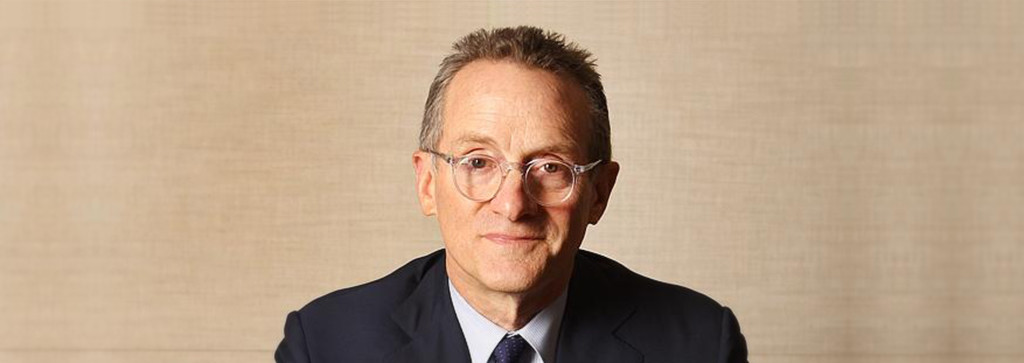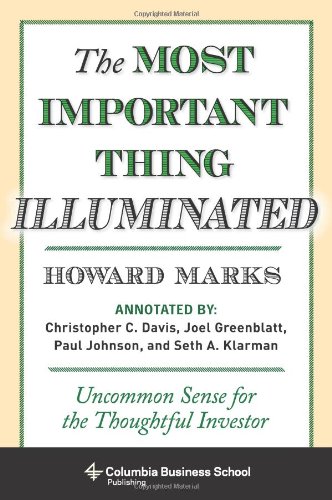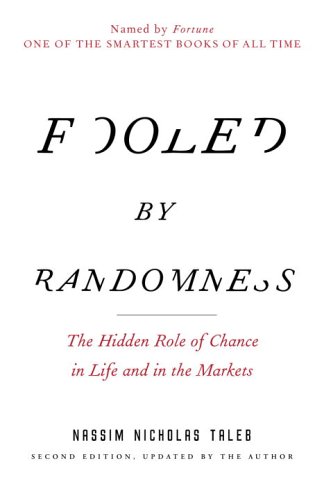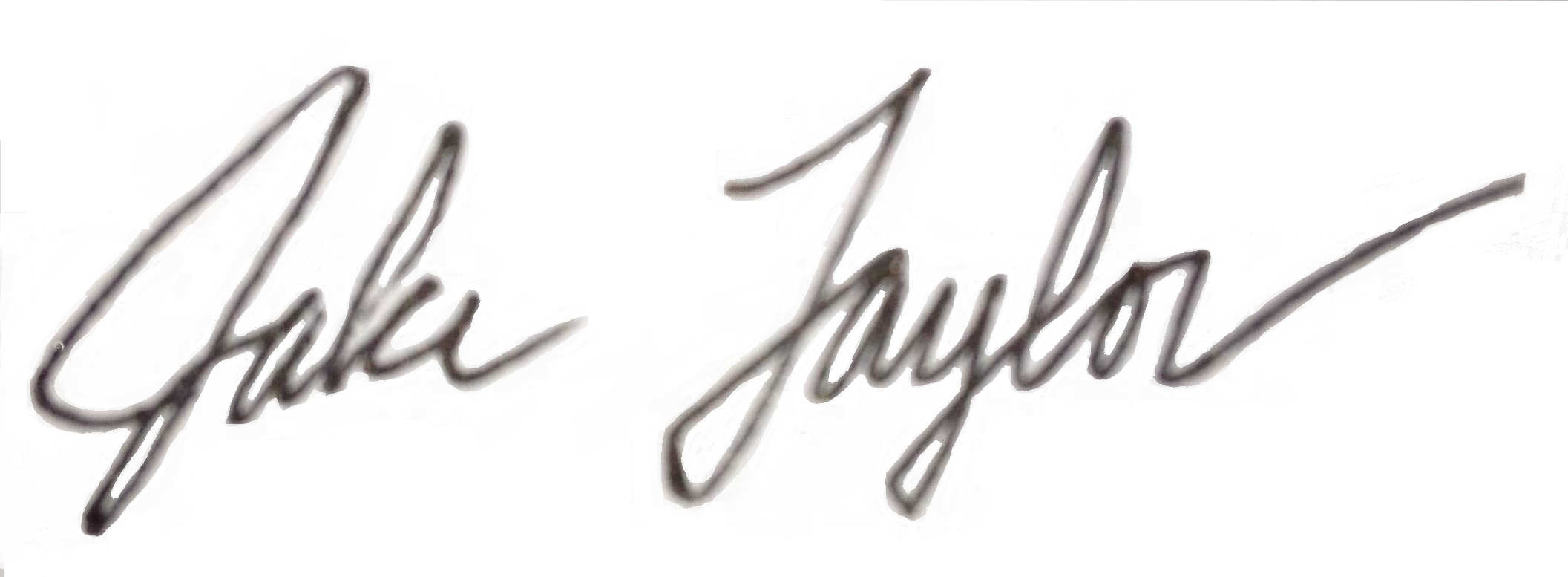Author Background:
Howard Marks is an American investor and writer. After working in senior positions at Citibank early in his career, Marks joined TCW in 1985 and created and led the High Yield, Convertible Securities and Distressed Debt groups. In 1995, he left TCW and co-founded Oaktree Capital Management. In the 2011 Forbes rankings of the wealthiest Americans, Marks was ranked the #273 richest in the United States, with a net worth of $1.5 billion.
He is known in the investment community for his “Oaktree memos” to clients which detail investment strategies and insight into the economy, and in 2011 he published the book The Most Important Thing: Uncommon Sense for the Thoughtful Investor.
Howard’s Book Recommendation:
Audio Podcast:
Other ways to listen:
* On iTunes
* Right Click + Save As to download as an MP3
* Stream here directly
With gratitude,
Transcript:
Jake: Hi! Welcome to Five Good Questions. I’m your host, Jake Taylor. Our guest today is Howard Marks.
After attending Wharton and getting an MBA from the University of Chicago, Howard started his career at Citibank. Eventually, Howard started his own firm in 1995 called the Oaktree Capital Management which is in-charge of $90 billion worth of assets.
Howard is the author of The Most Important Thing: Uncommon Sense for the Thoughtful Investor. According to Forbes, Howard is one of the richest men in America. Let’s ask him five good questions.
Hi, everybody. My guest today is Howard Marks, author of The Most Important Thing. Howard, where are we talking to you today?
Howard: I’m in New York.
Jake: Great. Looks like we got a nice view out your window there a little bit and some babies in the background.
Howard: Right. I just became a grandpa this year.
Jake: Ah, congratulations.
Howard: Thank you.
Jake: So Howard, let’s jump in to our five good questions. The first question, number 1; your book came out in 2011. Is there anything that you would add to it since then; anything that maybe a recent anecdote that really nails one of your core principles in the book?
Howard: No, I don’t think so. I think, well, I did. There has been an updated edition called The Most Important Thing Illuminated. And in that I did a 21st Chapter. It was actually something that fell on cutting room floor the first time around when the editor said it was too much and I decided that it was lacking. So now there’s the chapter that says the most important thing is reasonable expectations. And I think that’s a pretty good rule for life.
Jake: Yeah, I’ve heard it said before that, what is it, like expectations minus results equals happiness.
Howard: Well, that’s probably a good point.
Jake: Yeah. Okay, question #2. Your book is I think one of the best in books on investment philosophy that I’ve come across.
Howard: Thank you.
Jake: I put it up there with Benjamin Graham level type work. And it does an amazing job of explaining both the investment process and also risk. And also, just in general, like expectations about investing.
It’s clear that you spend a lot of time really deeply thinking about the investment process. Is that something that was just kind of innate to you being very philosophical or is it from just observing markets for so many years? Where did that come from? How did you get so thoughtful?
Howard: Well, I think it’s all of the above. The one thing I can tell you is that it was never intention. You know, I didn’t set out to develop a philosophy but rather I lived life. And obviously, that had a lot of experience and was subject to a lot of resources and inputs including the things I lived, the things I read and so forth. And over time, I guess you would say, kind of gleaned snippets here and there which for me came together to something which I think is cohesive even if not concise.
Jake: Sometimes that’s hard to do.
Howard: Right.
Jake: Great. So question #3. I keep a Google doc where I capture all the great quotes that I come across in my reading. And most of the time, I’ll get like one or two good quotes out of a book. But with yours, it was literally like maybe a couple of dozen.
Howard: Thank you.
Jake: So one of them I’m going to read to you and then I’m going to ask you a question about it. Here it is.
“It’s one thing to have an opinion of the macro but something very different to act as if it’s correct.”
Now the question behind that is, obviously, timing like the perfect top and bottom of markets is impossible to do and no one’s been able to do it consistently. But what are your thoughts on certain like macro valuations like Market Cap to GDP, Tobin’s Q, Shiller PE? Do you think that those can inform an investor on maybe when is the time to really be searching hard for investments and when is it may be better to go take a vacation because you’re going to be reaching for something?
Howard: Right. Well, I think if somebody took the model from the book and did a spreadsheet and sent it back to me and it kind of said, “Hold your wallet or spend your wallet.” Those are the two extremes.
And I think it’s very important in order to figure out which of those to do. That it is to say “think about investing or think about conserving” is you got to do two things. Number one, observe valuations. Like the kind of things you talked about. And the other thing is observe what’s going on around you, observe the behavior of people. And that will tell you whether there’s a mindless excitement in the market which is dangerous or a total terror which can make a buying very attractive.
But I think that it should be the combination of the two and the observation those of valuation ratios very important. Although as my first boss used to say about economists, they should be on tap but not on top. So we shouldn’t do anything just because of a ratio but it should start us thinking.
Jake: Good. I think that’s good advice. So you are the founder of Oaktree Capital and it’s a massive firm with $90 billion under management and mostly in the distressed and high yield debt space. I had a question about how do you balance being a bottom-up kind of investor, and generally market agnostic, in a fixed income space which is a lot of times buffeted by more macro things going on with interest rates and, you know, fluctuations there. It seems like the tide could pull particularly strong on your portfolio, how have you done it?
Howard: Well number one, remember that in fixed income, the tide and pull on the portfolio of the macro events can pull for awhile. But in the end they’re not just positive. If you buy a bond from a company and they promised they’ll pay you interest and your money back in 10 years; in the long run, the only thing that matters is whether they keep that promise. In the short run, the bond can go up or down in price. But in the end if the company is credit worthy, you’ll get your interest and you’ll be repaid at the end.
So I think that the short term timing is not that important in the fixed income. And, you know, bottom-up is much more important which is to say, which bonds will you buy, which ones will you exclude. In distressed debt investing, you’ll have to be really attuned to these things. In distressed debt, that is the debt of companies that are either bankrupt or expected to go bankrupt. Interest rates, the directions of market prices are not the important thing. The important thing is whether there are enough assets in the company to cover your claim. So that’s a very specific, very detailed bottom-up. And in the short run that is by far the most important.
Jake: Great, thank you for that. Question #5 is you’ve obviously done very well for yourself. Money is probably not a motivation at this point. What does keep you motivated to keep working and what do you want your legacy to be?
Howard: Well, I mean, I think the best reason to work assuming you have enough money to eat is that you should have a good time. You should enjoy yourself. You should like what you’re doing. You should feel you’re making a contribution. And I do those things. I love the things I do today, day to day, including writing, speaking, ideating, philosophizing and leading the organization.
In the 60s, yes, there was a rock club in San Francisco called the Fillmore and it was run by a guy named Bill Graham. He said, it’s only work if you’d rather be doing something else. And I love what I do. I can’t imagine where I would get my satisfaction if I didn’t do the things that I do.
And I’m tempted to say I would do it for nothing but in fact I do. I’m not paid at Oaktree to work. None of the founders get a paycheck, a salary or a bonus. And all we get is our share of the company’s profits.
Now that we’ve gone public and we have stock, I’ll get that share of the profits whether I work or not. So I really am, in the literal sense, working for nothing. But I’m glad to do it because I love my work.
What was the second part of your question?
Jake: What would you like your legacy to be?
Howard: Well, I’d like people to say the Oaktree was a rare investment organization that had consistently good performance without the ups and downs. That made a lot of money for its clients with the risk under control. That behaved in a way that was marked by integrity and that puts its clients first. And that it was a good place to work for the employees. And that the success of the firm and the founders were shared with all the employees. If I could go out with that, I’d be pretty happy.
Jake: That’s great. And then we have our bonus question that we always ask and it’s about a book recommendation. And what we’re looking for is something that is kind of under rated and maybe under followed, you know, kind of more obscure pick that you don’t think has gotten the appreciation that it deserves.
Howard: Well, I like the book Fooled By Randomness by Nassim Nicholas Taleb.
Jake: Uh-huh.
Howard: I think it’s got some very, very valuable ideas. Understanding risk and dealing with risk and uncertainty is a very big part of investing and also of life. And I think that it’s easier to conceptualize risk and uncertainty if you start from the premise that the underlying process is barely disorderly. And that the results, you know, there’s the tendency to say that the future is uncertain but the past is, well, the past. It’s history. The past is in the books.
But I think if you look at the past and you say to yourself, you know lots of different things could’ve happened. Only the past that actually happened then was recorded in the history books was only one of the many things that could’ve happened then. But for randomness, the others would’ve happened. And I think if you look at history that way, it informs how you look at the future.
So I recommend Fooled By Randomness to everyone.
Jake: Great. Howard, we really appreciate you coming on our show. And everybody pick up The Most Important Thing if you want to really take your investment philosophies to the next level.
Howard: Thank you, Jacob.
Jake: Thanks, Howard.





